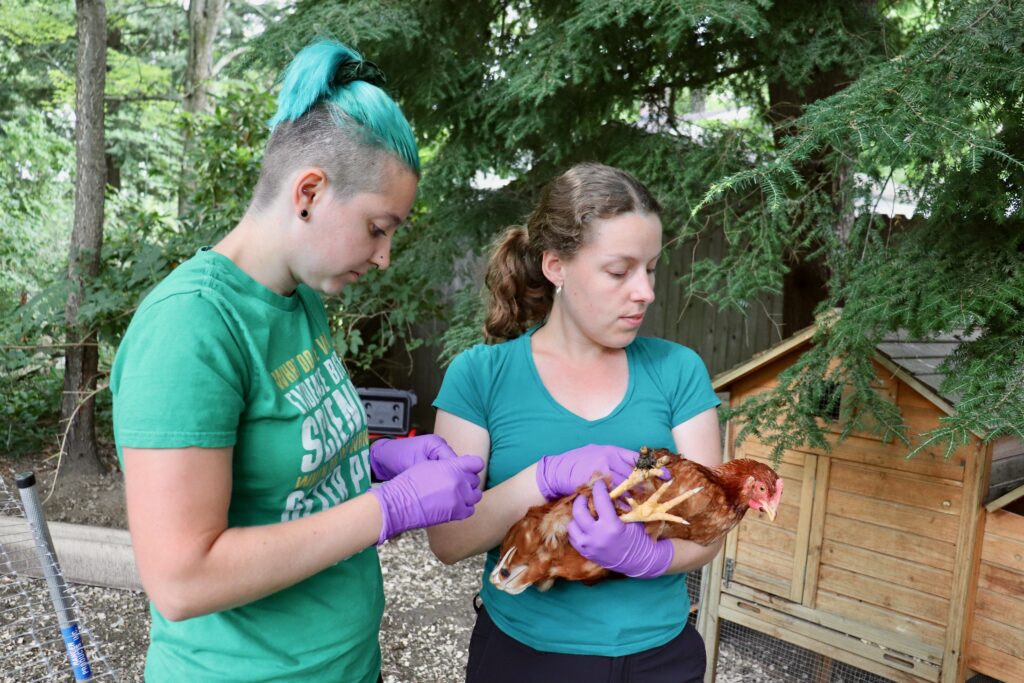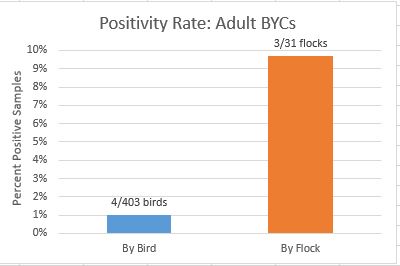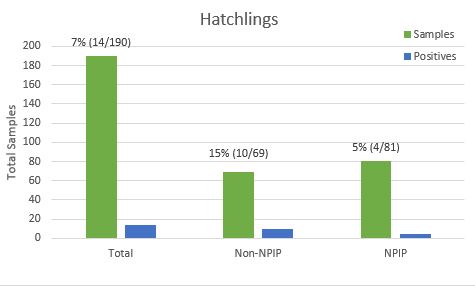
The last couple of weeks have been exciting for chicken & chick sampling results. Keep in mind that “exciting” for scientists is roughly the same as “interesting times,” in this case meaning we have found a lot of Salmonella recently.
ADULT BIRDS: We have found Salmonella in an additional flock of chickens, bring our adult bird totals up to 4/403 birds positive, and 3/31 flock positive (see chart below).

What does this mean for Vermont BYC owners?
- The bad news: Salmonella is 3x more common in Vermont flocks of chickens (10%; 3/31 flocks) than it is in western WA (3%; 1/34 flocks) or in the greater Boston area (1.9%; 1/53 flocks). Possible reasons for this difference includes a higher number of rural flocks in our study than in the WA and Boston studies (the Boston study was entirely urban). Wild birds, rodents, and mammals can all have Salmonella, and they can pass it on to backyard chickens, and our Salmonella-positive flocks have all been from rural farms/homes.
- The good news: looking at by-bird rates, Salmonella is extremely rare in chickens in Vermont, with fewer than 1% of chickens testing positive
- Other good news: In the flocks we tested, only one or two of the birds in each flock had Salmonella at the time we tested. This means that you do not have to cull your whole flock if one has/gets Salmonella
CHICKS: We have found our first positive samples from chicks purchased from flocks participating in NPIP. No system is perfect, but this is a bit concerning nonetheless.

What does this mean for Vermonters buying baby chicks?
- More than half our samples have come from NPIP-certified hatcheries, which are expected to be Salmonella-free
- 10/69 samples not from NPIP-certified hatcheries were positive (15%).
- 4/81 samples from sellers purchasing from NPIP-certified hatcheries were positive (5%)
- Overall, more than 7% of the chick pens/shipments we’ve sampled contain Salmonella, indicating that baby chicks often carry Salmonella
- Takeaway: Buying from an NPIP-certified hatchery or a store that buys from an NPIP-certified hatchery is the best way to reduce your risk of catching Salmonella from baby poultry, but you should still be careful about kissing or cuddling your baby chicks as no system is 100% sure.
